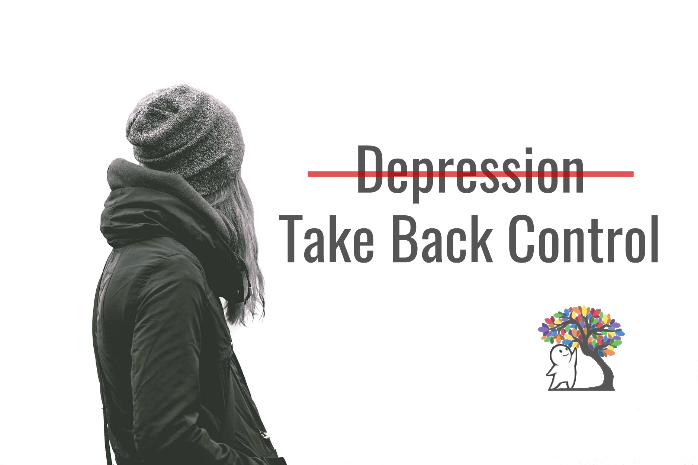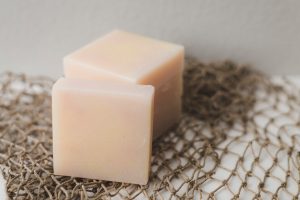Depression Relapse – Take Control of Your Life!

As some of you may know I’ve battled with depression since I was child. I have persistent depressive disorder with the occasional major depressive episode. Growing up I struggled with my energy. There were days where I didn’t want to get up or even shower. I would gain weight and then lose weight fast. My relationship with food was unhealthy. I either wanted to devour the fridge or eat nothing at all. I look back at my childhood and teenage years with sadness and regret. That I passed all those years in misery. I truly never had fun. Happiness felt foreign, it’s like it was wiped of the face of this earth. I felt such agony that I began to put my self-worth in the hands of others and that just led to grater disappointment.
 I honestly thought that my life would never improve. Once I believed I overcame my depression, it would come back stronger. It wasn’t till I got older and started therapy that I realized I never had a relapse prevention plan. I also wasn’t aware of my symptoms and bad habits. Through therapy and much reading, I realized the importance to understand all of my triggers, symptoms, and bad habits. By doing so I was able shift my life for the better because I became aware of what not to do.
I honestly thought that my life would never improve. Once I believed I overcame my depression, it would come back stronger. It wasn’t till I got older and started therapy that I realized I never had a relapse prevention plan. I also wasn’t aware of my symptoms and bad habits. Through therapy and much reading, I realized the importance to understand all of my triggers, symptoms, and bad habits. By doing so I was able shift my life for the better because I became aware of what not to do.
 Why is it important to have a relapse prevention plan you may ask? Well, depression isn’t something that completely goes away, but you can live a happy and fulfilling life, as long as you understand how your depression manifests. By doing so you can create a plan/routine that will prevent you from relapsing back into depression. Before I go into details on how to create a routine/plan. I must explain the difference between lapse and relapse. Lapse is a brief “slip” while a relapse is falling back into depression. It is important to note that both lapse and relapse are a normal part of recovery. Your prevention plan isn’t something you are going to master in a day.
Why is it important to have a relapse prevention plan you may ask? Well, depression isn’t something that completely goes away, but you can live a happy and fulfilling life, as long as you understand how your depression manifests. By doing so you can create a plan/routine that will prevent you from relapsing back into depression. Before I go into details on how to create a routine/plan. I must explain the difference between lapse and relapse. Lapse is a brief “slip” while a relapse is falling back into depression. It is important to note that both lapse and relapse are a normal part of recovery. Your prevention plan isn’t something you are going to master in a day.
Before you create a routine/plan write down your bad habits and how to correctly change it. Divide your routine by topics. For example, eating, hygiene, sleeping, socializing, social media, and exercising, etc.
Topics
Symptoms: Ask yourself, are you unmotivated? Do you have insomnia or hypersomnia? Are you irritable? Are you sad or empty? Are you having trouble with concentration? Are you fatigued/restless? Do you feel hopeless? Do you have suicidal thoughts or attempts? Are you experiencing a loss of interest?
 Nutrition: Ask yourself, how often are you eating? At what times are you eating? What are you eating? Are you eating three times a day? Is it mostly junk food, if so what kind? Are you consuming sugary drinks? Does your plate have vegetables in it? Are you eating fruits? How much cups of water are you drinking daily?
Nutrition: Ask yourself, how often are you eating? At what times are you eating? What are you eating? Are you eating three times a day? Is it mostly junk food, if so what kind? Are you consuming sugary drinks? Does your plate have vegetables in it? Are you eating fruits? How much cups of water are you drinking daily?
Sleep: Ask yourself, at what time are you going to sleep? Can you fall asleep quickly? Do you wake up various times at night? Are you having nightmares? What thoughts keep you up at night? Are you sleeping too little or way too much? Do you feel rested after sleeping? Are you browsing on social media while trying to sleep? Are you going to sleep at the time your supposed to?
 Hygiene: Ask yourself, are showering daily? Do you brush your teeth twice a day? Do you wash your face in the morning? Do you change into clean clothes daily? Are you putting on clean underwear? If you’re a girl are you changing your menstrual cup, tampon, or pad when your supposed to? These may be silly questions to you, but not maintaining good hygiene down there can lead to infections.
Hygiene: Ask yourself, are showering daily? Do you brush your teeth twice a day? Do you wash your face in the morning? Do you change into clean clothes daily? Are you putting on clean underwear? If you’re a girl are you changing your menstrual cup, tampon, or pad when your supposed to? These may be silly questions to you, but not maintaining good hygiene down there can lead to infections.
Exercising: Ask yourself, are you exercising? If so how many times a week? How long are you exercising? What type of workout are you doing? Do you know how to correctly do it? Are you hydrating yourself while you do? Do you have a snack before exercising? Believe it or not exercising releases happy chemicals in your brain that will impact your mood.
 Socializing: Ask yourself, are you isolating yourself? Do you have anyone you can talk to that has your best interest? Who are you surrounding yourself with? Do you go out with friends and family? If so, how often to you go out with them? Have you considered trying out new hobbies that can help you socialize with others? Are you answering text messages and phone calls? Do you have supportive people in your life? Do you hang out around toxic people? Do your friends care about you or are they using you?
Socializing: Ask yourself, are you isolating yourself? Do you have anyone you can talk to that has your best interest? Who are you surrounding yourself with? Do you go out with friends and family? If so, how often to you go out with them? Have you considered trying out new hobbies that can help you socialize with others? Are you answering text messages and phone calls? Do you have supportive people in your life? Do you hang out around toxic people? Do your friends care about you or are they using you?
 Social media/online: Ask yourself, are you following any triggering pages/blogs? Are you following negative people? Are you reading triggering content? Do you have any “friends” that bother you online? Are you following pages that add no value to your life? Are you spending too much time online? Are your online role models a bad influence?
Social media/online: Ask yourself, are you following any triggering pages/blogs? Are you following negative people? Are you reading triggering content? Do you have any “friends” that bother you online? Are you following pages that add no value to your life? Are you spending too much time online? Are your online role models a bad influence?
Medical condition/medicine: Ask yourself, do you have any medical conditions that can cause symptoms of depression? Are you taking any medicines that cause depression? Can it be the dosage of your medication? Did you suddenly stop taking a medicine? Illnesses that can cause depression are arthritis, lupus, diabetes, multiple sclerosis, and hypothyroidism, etc. Medicines that have depression as a side effect are contraceptives, asthma medications, Chantix, corticosteroids, and immunologic medications, among others.
 Thought patterns: Ask yourself, what are you frequently thinking about? Is it about a specific person or situation? How often are you thinking about it? Is there a trigger behind those thoughts? Is your thinking pattern mostly negative or positive? What is your inner voice saying? Does your thinking affect your functionality?
Thought patterns: Ask yourself, what are you frequently thinking about? Is it about a specific person or situation? How often are you thinking about it? Is there a trigger behind those thoughts? Is your thinking pattern mostly negative or positive? What is your inner voice saying? Does your thinking affect your functionality?
Self-image: Ask yourself, do you feel attractive? What don’t you like about yourself? Do you feel confident? Is there anything you dislike about your personality? Are you putting your self-worth in the hands of others? Are you comparing yourself to another person? What would your ideal self be like?
Hobbies: Ask yourself, are you doing what you love to do? If so are you consistent? What do you love doing? Do you feel better after doing your favorite hobby? Are there any new activities you would like to do?
 After you have asked yourself these questions you can create a plan/routine based on your personal experience with depression. For example, if you are not eating three times a day, you’re showering every couple of days and skip your medicines. Then create a routine/plan where you have three meals, shower daily and take your medication when you’re supposed to. The trick here is to create a routine that is adapted to your life style and schedule. By becoming aware of how your depression manifests you can do something about it.
After you have asked yourself these questions you can create a plan/routine based on your personal experience with depression. For example, if you are not eating three times a day, you’re showering every couple of days and skip your medicines. Then create a routine/plan where you have three meals, shower daily and take your medication when you’re supposed to. The trick here is to create a routine that is adapted to your life style and schedule. By becoming aware of how your depression manifests you can do something about it.
First start by buying an agenda or making one yourself. Then in each hour add an activity that you would like to do such as eating or a hobby. You don’t need to fill in each hour, so please don’t stress if you aren’t doing anything at a particular moment. Here an example:
 6 am: Wake up, drink a cup of water, eat a snack & change into gym clothes.
6 am: Wake up, drink a cup of water, eat a snack & change into gym clothes.
6:45 to 7:45 am: Exercise with personal trainer.
7:45 to 8:30 am: Shower & change into clean clothing.
8:30 to 9:00 am: Eat breakfast & leave to university.
9:30 to 10:30 am: Class A
10:30 to 11:30 am: Class B & eat a healthy snack
12:00 to 1:00 pm: Eat lunch
1:00 to 2:00 pm: Class C
 2:00 to 3:00 pm: Class D
2:00 to 3:00 pm: Class D
3:00 to 4:00 pm: Go Home & eat a healthy snack
4:00 to 6:45 pm: Study for tests, do homework & projects.
6:45 to 7:10 pm: Eat dinner
7:10 to 10:00 pm: Watch a movie with family.
10:00 pm to 6 am: Sleep
 Your daily routine doesn’t have to be exactly like this. You might prefer to exercise at night or maybe it is easier for you to wake up later in the day. The trick here is to adapt your routine/plan with your responsibilities and schedule. By having a healthy routine to follow, your depression symptoms will improve drastically. This isn’t intended to replace professional help, but it can be used along with it. Don’t feel bad if you create a plan to follow and you’re having a hard time with it. It won’t be easy at first and eliminating bad habits in just one day is impossible. It takes time to get used to a new routine.
Your daily routine doesn’t have to be exactly like this. You might prefer to exercise at night or maybe it is easier for you to wake up later in the day. The trick here is to adapt your routine/plan with your responsibilities and schedule. By having a healthy routine to follow, your depression symptoms will improve drastically. This isn’t intended to replace professional help, but it can be used along with it. Don’t feel bad if you create a plan to follow and you’re having a hard time with it. It won’t be easy at first and eliminating bad habits in just one day is impossible. It takes time to get used to a new routine.
Lastly, the importance of understanding your inner voice and how you perceive yourself is because along with your new routine you should work on shifting your thoughts into positive ones. Have you also implemented a new routine to help with your depression? If so let me know how it went in the comment section below.




Responses